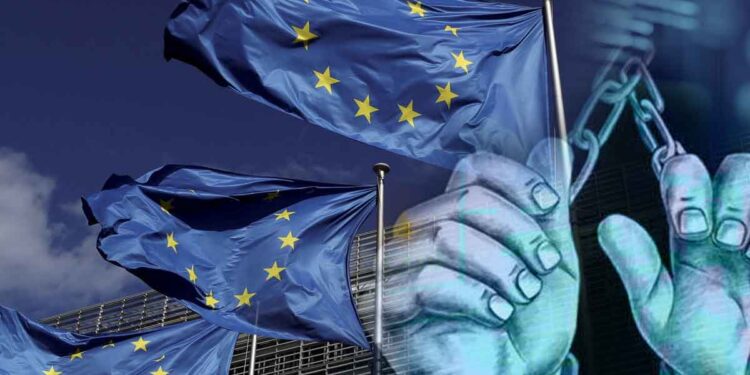On Monday, the European Union announced that it has started a dialogue with the Kingdom of Saudi Arabia on human rights.
This came in a press conference by the Head of the Human Rights and Democratisation Department in the European Parliament, Louisa Rager, following a session in Parliament to discuss the draft Human Rights and Democracy Report for 2021.
“I just got out of an important meeting in Saudi Arabia. It’s a very important conversation and it’s happening for the first time,”” Rager said. “I can say that in this way we will continue the dialogue with partner countries on human rights,” she added.
For her part, MEP Maria Rodriguez said that democracies around the world are eroding.
Rodriguez called on the union to develop concrete tools to support democracies in the world, and to be more coherent and consistent regarding human rights.
The European Union has been repeatedly urging Saudi Arabia to improve human rights conditions and to introduce reforms in the country.
In a statement issued last June, the European Parliament demanded the Saudi regime to allow European ambassadors and missions to visit its prisons, and to inspect the conditions of prisoners of conscience, “especially child convicts who are being held on death row,” calling for ending these sentences.
It stressed on the need for Saudi Arabia to review the cases of all prisoners sentenced to death in order to commute their sentences, or to retry them in a fair trial, which will not result in in sentencing them to death, according to the statement.
The European Parliament stressed the importance of suspending all EU exports including mass surveillance technology and other dual-use items for Saudi Arabia, which could be used to facilitate internal repression and silence the civil society.
It called on the Saudi authorities to “immediately and unconditionally release all human rights defenders, women’s rights defenders, peaceful critics and activists detained in Saudi prisons.”
It also expressed concern about the vague definition of terrorism in Saudi Arabia’s counter-terrorism law, condemning their use of the law as a tool to punish human rights defenders.
The European Parliament argued that the reality of the Saudi political system is that it remains largely undemocratic, and continues to severely suppress dissenting voices, despite its frequent announcements of human rights reforms.
Since Prince Mohamed bin Salman assumed the mandate of the covenant in Saudi Arabia on April 29, 2015, prominent advocates and activists in the country, including Salman Al-Ouda, Awad Al-Qarni and Ali Al-Omari, have been arrested and detained on charges of “terrorism and conspiracy against the state,”.
Despite multiple demands by international and non-governmental human rights organizations, public figures and activists to release them; The Saudi authorities ignored these demands, and referred them to meager trials, in which the prosecution demanded the imposition of death penalty for them.
Human rights organisations say that Saudi courts are failing to comply to with the standards of fair trials.
Arab Organisation for Human Rights in the UK (AOHR UK) had repeatedly called for the release of prisoners of conscience in Saudi Arabia.
AOHR UK called on all activists, bloggers and journalists defending human rights and human rights organisations, to pay utmost importance to the cases of detainees in Saudi prisons, and to put pressure on the Saudi authorities to immediately release all prisoners of conscience, especially those who suffer from serious illnesses.






























